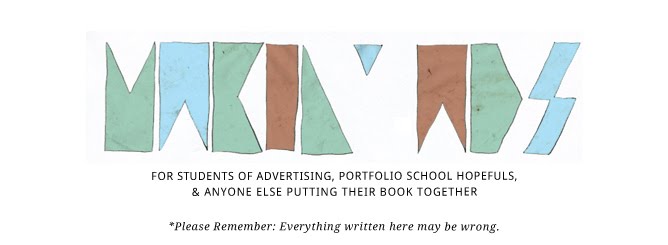If you need to write a TV script, do not start by writing a TV script. Start by writing a
premise.
Here's a short story to tell you what I mean:
The very first time to I sat down to write a TV script, I was an intern at GSD&M. My partner and I had no experience at all writing thirty-second scripts.
The assignment was for a restaurant, which the brief assured us was the
place to go for celebrations. So we came up with one idea where a kung fu master takes his two 10-year-old students to lunch after a tournament.
Realizing there's only one jalapeno popper appetizer left on the plate, one student tries to
grab it. His fellow kung fu student blocks the reach with a wax-on-wax-off
move. Then he tries to take it, and the other kid uses some kung fu move to
block the reach. This results in a flurry of blocks, jabs, reaching,
wax-on-wax-off fist movement over the plate as their master sagely looks on.
Then the two kids realize the popper is no longer on the plate, and their teacher smiles and says something like, "He who is not distracted gets the popper!"
Kind of a funny spot, we thought. Might not have been super p.c., but I
would have enjoyed seeing that on TV. So my partner and I scripted it up.
And that was one of the
most agonizing experiences of my internship.
We debated on whether we should
open outside the restaurant, or open on one of the booths. Should the jalapeno
poppers be freshly delivered to the table, or should they already be eating
them? Should there be a waiter or waitress? At the end, should the teacher say,
"He who is not distracted..." or "Lesson #8..." or
"You have much to learn..." It took us hours to figure out that
script.
But the thing is, we'd already figured out the premise. The creative director didn't need a finished script. He wanted an idea. We gave him five scripts. But in the time it took us to script up five fully-formed scripts we could both agreed on, we could have concepted and
written a hundred premises.
A premise is a five- or six-sentence description of what the
spot is about, and what happens in it. Keep it loose. But keep it interesting. If it doesn't work well as a premise, it's probably not going to work as a
script.







